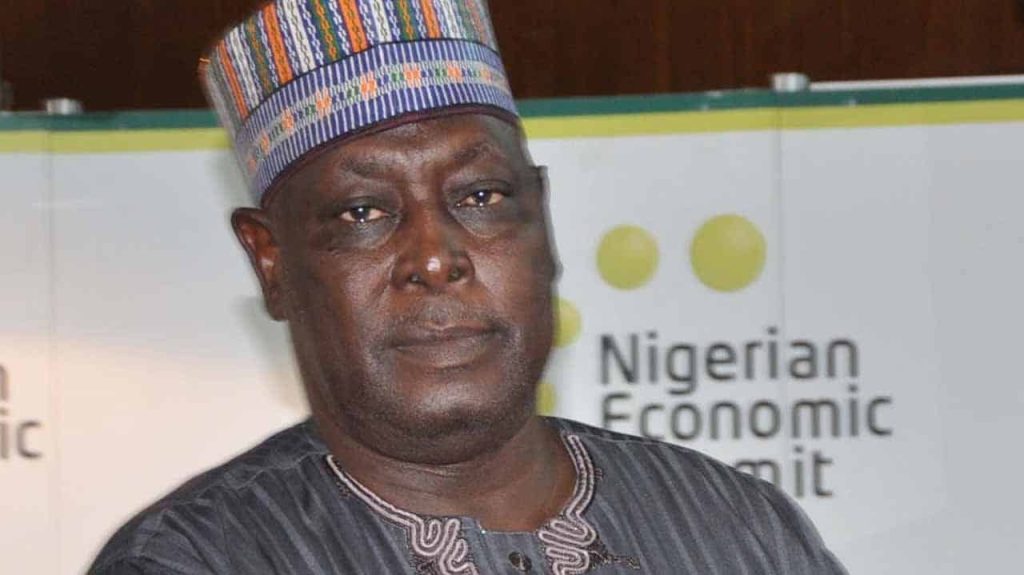
Former Secretary to the Government of the Federation (SGF), Babachir Lawal, has strongly criticized the controversial Tax Reform Bill, which has sparked significant opposition from Northern Nigeria.
Lawal described the bill as a “monster” and emphasized that the opposition from the North is due to its potentially negative impacts, particularly on food prices and the economy. In an interview with Punch, Lawal also took issue with the portrayal of Northerners as lazy, stating that such sentiments were rooted in ignorance and ingratitude.
According to Lawal, Northerners have long contributed to the economic prosperity of the South, particularly through agricultural products that support industries such as breweries, flour mills, and food processing factories. He questioned the Southern narrative that brands Northerners as lazy, arguing that the North produces vital raw materials like cattle, rice, and grains that fuel industries in the South. Lawal pointed out that these goods are often processed in the South, where value-added activities are taxed, yet the tax revenue is attributed to the Southern states rather than to the Northern states where the raw materials originate.
Lawal gave the example of Adamawa State, his home state, which produces significant agricultural output. He explained that over 30,000 cattle are sold weekly in Adamawa’s international cattle markets, many of which are transported to the South for processing into products like sausages, beef, and “gala” that are sold in supermarkets, all of which are subject to VAT. Despite this, the VAT collected from these processed products is attributed to the Southern states, which benefit from the value addition while the Northern states, where the cattle are raised, receive no direct benefit from the tax.
He also referenced the rice production in Adamawa, where nearly one million metric tons of paddy rice are produced annually. Much of this rice is transported to mills outside the state for processing, where it is sold, subject to VAT that is again attributed to Southern states. Lawal calculated that if a levy were imposed on agricultural products like cattle, rice, maize, and beans, states like Adamawa could generate substantial revenue. For example, a levy of N5,000 per cow could bring in at least N7.8 billion annually, while a levy on rice could generate up to N50 billion per year. However, Lawal explained that the Adamawa State government has refrained from imposing such levies out of concern that it would lead to double taxation and, ultimately, higher food prices.
The former SGF took aim at the Southern narrative, which he claimed unfairly paints the North as lazy and unproductive. He argued that such statements reflect a lack of understanding and a failure to appreciate the vital role that the North plays in supporting the South’s economy. Lawal dismissed the view that the North is unproductive, noting that much of the economic activity in the South is fueled by raw materials from the North. He also criticized the attitude of the Southern elite, whom he accused of taking the North’s contributions for granted.
Lawal’s criticism extended to the broader economic policies under President Bola Ahmed Tinubu’s administration, particularly the government’s approach to taxation and the cost of living. He argued that the Tax Reform Bill, if passed, would lead to higher food prices and greater financial burdens on ordinary Nigerians. He warned that the bill would further exacerbate inflation, particularly in the food sector, as it would increase the cost of raw materials and products that are essential to everyday life.
Lawal also made a pointed remark about Lagos State, which he described as a major beneficiary of raw materials from the North. He suggested that if the North were to withhold its raw materials, industries in Lagos and other Southern states would be severely impacted, leading to higher costs and potential economic stagnation. His comments were a critique of the perceived imbalance in the current economic system, where the South benefits disproportionately from Northern resources without offering sufficient acknowledgment or compensation.
Concluding his remarks, Lawal warned Southern Nigerians to prepare for a sharp rise in the prices of food and raw materials if the Tax Reform Bill is implemented as it stands. He pointed to the impact of rising petroleum prices and the currency exchange rate under the current administration, suggesting that these issues would compound the financial challenges facing Nigerians. Lawal’s statements reflect broader concerns about the fairness of the tax system and the need for a more equitable distribution of resources across the country. He emphasized that the economic system should be restructured to better reflect the contributions of all regions, rather than perpetuating stereotypes or favoring one region over another.
In sum, Babachir Lawal’s comments serve as a powerful critique of the Tax Reform Bill and the broader economic policies under the Tinubu administration. He argued that the bill would not only hurt Northern states but would also have far-reaching consequences for food prices and the general economy. By challenging the narrative of Northern laziness and calling for a more equitable distribution of resources, Lawal’s statements shed light on the economic realities that are often overlooked in national debates.





